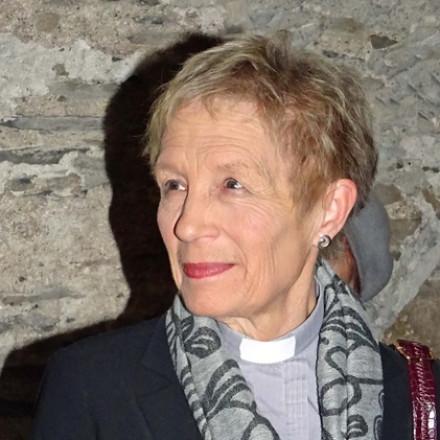‘The one who blesses us’ – a new angle on immigrants
‘Any man’s death diminishes me,’ wrote the Anglican cleric John Donne some 500 years ago, ‘because I am involved in mankind’.
‘Any man’s death diminishes me,’ wrote the Anglican cleric John Donne some 500 years ago, ‘because I am involved in mankind’. APART from the gender-specific language, this could serve as a motto for those who cherish the lives of immigrants equally with their own. There are few enough such people, perhaps fewer each year as the millions of refugees from the Middle East continue to increase and the resources of Western democracies shrink. So the challenge of Jesus Christ is huge: “I was hungry and you gave me no food... I was a stranger and you did not welcome me... Truly I tell you, just as you did not do it to the least of these, you did not do it to me... Depart from me into the eternal re.” (Matt.25.42–45) His challenge is being met by some Christians – and some of other faiths. It is a challenge that far too many who claim to be Christian are refusing, especially Christians in the West. In Lebanon, however, where one third of the population are refugees from other countries, Christian families have been particularly good at hosting refugees who are fellow Christians. Yet refugees determined to reach Europe tend to stay in the camps run by refugee agencies such as UNHCR, which entitles them to seek resettlement in the West. In Jordan there are around 4 million refugees, 1.4m from Syria, the others mostly from Iraq or Palestine. Only around 25% of the Syrian refugees are in the camps, around 85,000 in Za’atari, around 30,000 in Azraq, and more living in unofficial camps around the country. As in Lebanon, those in the camps get the best deal in terms of education and communal facilities – and onward movement. The Christians among them are disappointed that their religion gives them no advantage in terms of getting to Europe. Should churches here try to change this? Or should we, like the relief agencies, refuse to discriminate? If any man’s death diminishes me, who is my neighbour? Rowan Williams, at St Martin in the Fields recently, suggested that it is ‘the stranger who could save me’. Often, as in the case of the Good Samaritan, it is from beyond the ‘walls’ that we build with our labels for others that blessing and rescue reaches us. We are surprised by God’s grace and blessing where we least it expect it. Must we not also be channels of unexpected blessing to those beyond our ‘borders’? Are we not called to be life-givers to all without exception. A young English woman, recently graduated from Oxford, would surely support such refusal to discriminate. Anna is the only European working with Relief International as an English teacher in the camps in Jordan, the only woman of the group not wearing a veil, Her best friends are now her Syrian co-teachers in the Za’atari and Azraq camps, and it is heart-warming to see photos of her with her Muslim girl-friends, so clear is the warmth of their affection for one another. Reflecting on her relationships with those who are now closest to her, she writes: “I suppose the strangest thing for me personally is how little I associate my friends, colleagues and students in the camps with the war I read about in the news. They seem so normal, so friendly, always encouraging me to eat more or to get married, telling me how much they love football and asking if I support Manchester United or Chelsea. I feel I should be able to perceive more differences between me and them. The little girls are like little girls I know back home; they care about playing with their friends, and dancing, and dressing fancy. Yet these girls lived alongside members of ISIS, saw bombs being dropped daily on their cities, and now live in a house the size of my bedroom. When the media talk about ‘Syrians’ it’s about people who seem to have no agency, people who don’t seem entirely real. Yet I teach and work with hundreds of Syrians a week and I can’t totally get my head to merge the two kinds of ‘Syrians’ I think about. I forget that they’re one and the same.”* Full article available in printed copies.

Ginnie Kennerley
is editor of SEARCH and canon emerita of Christ Church Cathedral, Dublin.